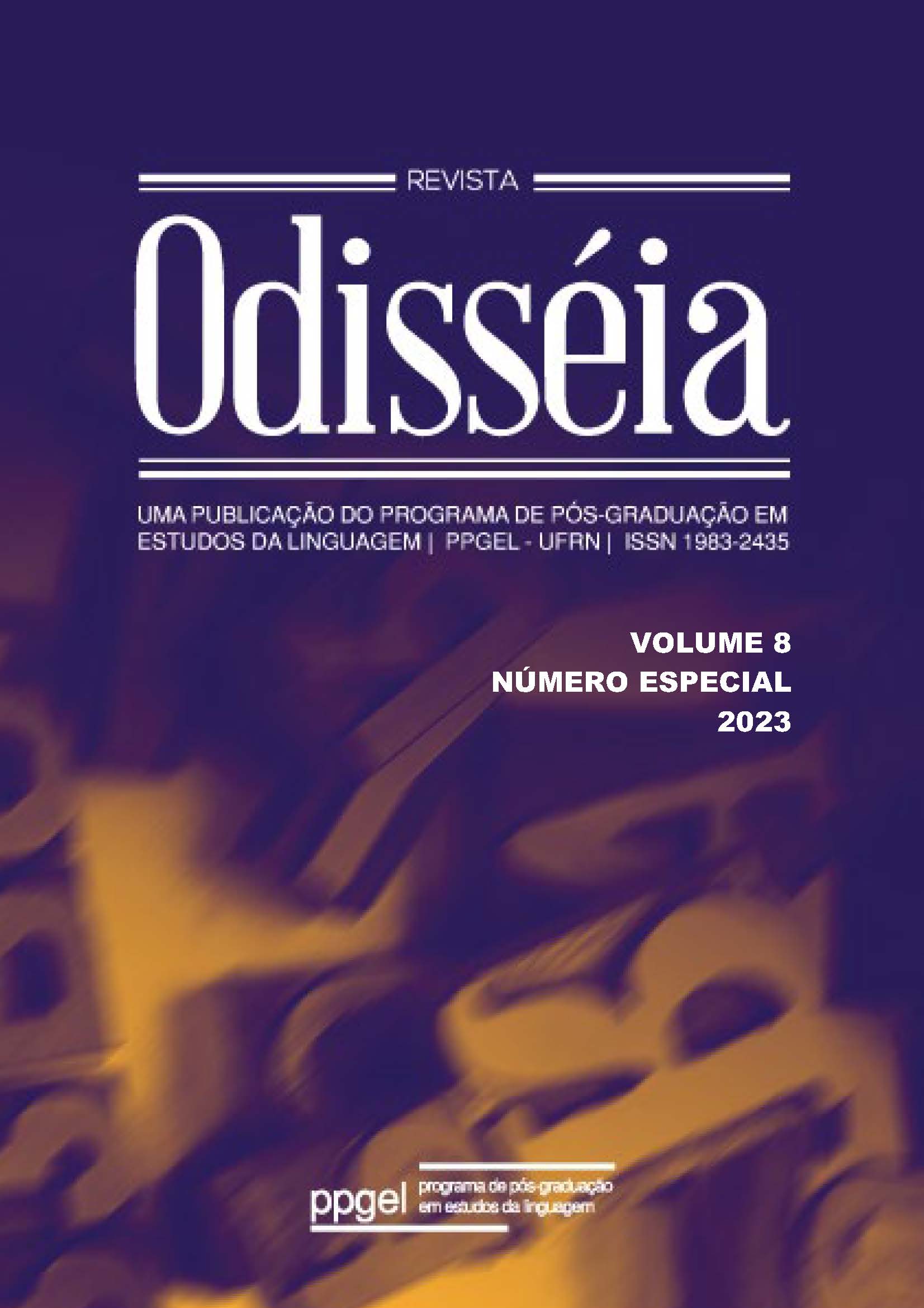Manifestações de um trauma
existir e resistir à violência contra as mulheres em Mulheres empilhadas, de Patrícia Melo
DOI :
https://doi.org/10.21680/1983-2435.2023v8nEspecialID31959Mots-clés :
Autoria feminina, Literatura brasileira, América LatinaRésumé
Na América Latina, produções literárias de autoria feminina buscam contestar discursos sacralizados pelo sistema moderno/colonial e de gênero. Em Mulheres empilhadas (2019), a escritora Patrícia Melo destaca as múltiplas formas de violência contra as mulheres para pensar construções sociais brasileiras por meio de lentes que focalizam uma perspectiva diferente da que se edificou por séculos em relação aos corpos femininos. Neste artigo, pretendo analisar estratégias narrativas utilizadas pela autora para que temas como a dor e manifestações derivadas de processos traumáticos sejam abordados. Embasada nos estudos de Rita Segato (2003), que contextualiza os elementos estruturantes da violência latino-americana; María Lugones (2008), que enfatiza a perspectiva decolonial e a colonialidade de gênero; Zilá Bernd (2013), sobre memória e narrativas de resistência; e Lúcia Zolin (2019), que evidencia a Crítica Literária Feminista como metodologia para análise de textos literários – além de outras feministas latino-americanas que partem das epistemologias do Sul –, concluo que Mulheres empilhadas desafia concepções patriarcais ao representar a luta coletiva de mulheres enquanto possibilidade de resistência.
Téléchargements
Références
BERND, Zilá. Por uma estética dos vestígios memoriais: releitura da literatura contemporânea das Américas a partir dos rastros. Belo Horizonte: Fino Traço, 2013.
CHEVALIER, Jean; GHEERBRANT, Alain. Dicionário de símbolos: mitos, sonhos, costumes, gestos, formas, figuras, cores, números. Tradução de Vera da Costa e Silva. 36. ed. Rio de Janeiro: José Olympio, 2022.
GARRAMUÑO, Florencia. Frutos estranhos: sobre a inespecificidade na estética contemporânea. Tradução de Carlos Nougué. Rio de Janeiro: Rocco, 2014.
LUGONES, María. Colonialidad y género. Tabula Rasa, Bogotá, n. 9, p. 73-101, jul.-dic., 2008. Disponível em: https://www.revistatabularasa.org/numero-9/05lugones.pdf. Acesso em: 20 mar. 2023.
MAGRI, Ieda. Nova descida ao inferno: Patrícia Melo e as mulheres que matam. Estudos de Literatura Brasileira Contemporânea, Brasília, n. 62, 2021. Disponível em: https://periodicos.unb.br/index.php/estudos/article/view/37434. Acesso em: 13 mar. 2023.
MELO, Patrícia. Conversa com Patrícia Melo | Mulheres Empilhadas (Leya, 2019). [Entrevista concedida ao] Projeto de extensão “Poesia, ficção e crítica”, da Universidade do Estado do Rio de Janeiro (UERJ). YouTube, 03 ago. 2021. Disponível em: https://www.youtube.com/watch?v=cvxrk-6HQ7U&t=2791s. Acesso em: 10 mar. 2022.
MELO, Patrícia. Mulheres empilhadas. São Paulo: LeYa, 2019.
MENDOZA, Breny. La epistemología del sur, la colonialidad del género y el feminismo latinoamericano. In: ESPINOSA-MIÑOSO, Yuderkys (coord.). Aproximaciones críticas a las prácticas teórico-políticas del feminismo latinoamericano. Buenos Aires: En la Frontera, 2010. p. 19-36.
MONTEIRO, Maria Conceição. A revolta das mulheres sacrificadas. Gragoatá, Niterói, v. 26, n. 54, p. 749-765, 2021. Disponível em: https://doi.org/10.22409/gragoata.v26i55.47465. Acesso em: 18 mar. 2023.
SCHMIDT, Rita Terezinha. Repensando a cultura, a literatura e o espaço da autoria feminina. In: NAVARRO, Márcia Hoppe (org.). Rompendo o silêncio: gênero e literatura na América Latina. Porto Alegre: Editora UFRGS, 1995. p. 182-189.
SEGATO, Rita Laura. Las estructuras elementales de la violencia: ensayos sobre género entre la antropología, el psicoanálisis y los derechos humanos. Bernal: Universidad Nacional de Quilmes, 2003.
ZOLIN, Lúcia Osana. Crítica feminista. In: BONICCI, Thomas; ZOLIN, Lúcia Osana (orgs.). Teoria literária: abordagens históricas e tendências contemporâneas. 4. ed. ampl. e rev. Maringá: EdUEM, 2019. p. 211-237.
Téléchargements
Publié-e
Comment citer
Numéro
Rubrique
Licence
© Revue Odisseia 2023

Cette œuvre est sous licence Creative Commons Attribution - Pas d'Utilisation Commerciale - Partage dans les Mêmes Conditions 4.0 International.

Este trabalho foi licenciado com uma Licença http://creativecommons.org/licenses/by-nc-sa/4.0

















